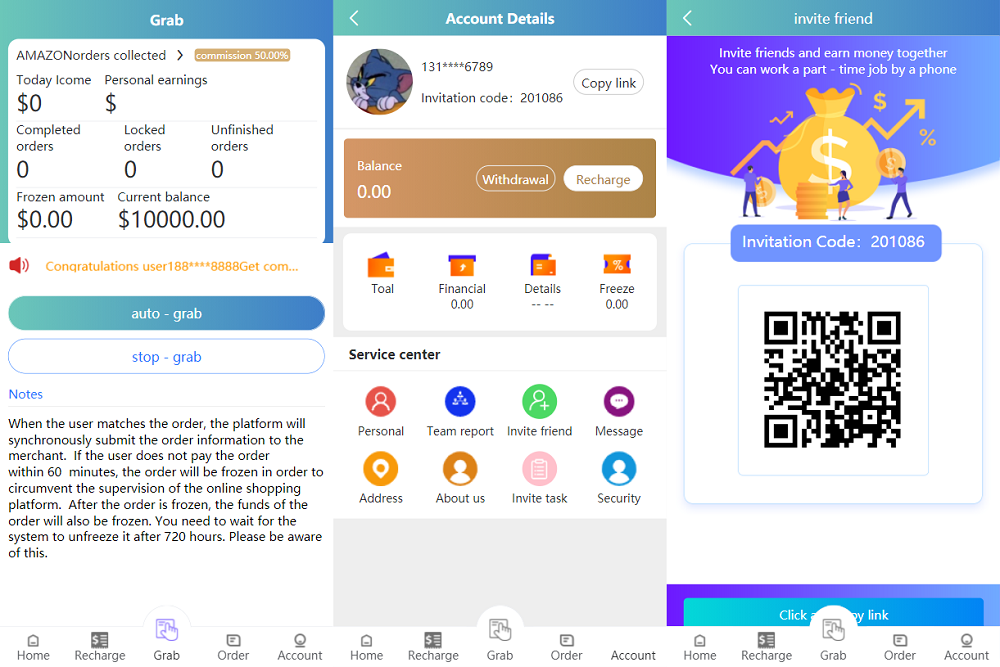如何保护数据免受【运营商劫持数据】
In today's digital age, safeguarding personal and professional data from unauthorized access is more critical than ever. One of the lesser-known but equally threatening risks is 【运营商劫持数据】, or ISP data hijacking. This phenomenon occurs when Internet Service Providers (ISPs) intercept, modify, or exploit user data for their benefit, such as injecting ads, redirecting traffic, or selling browsing data to third parties. Protecting your data from such practices requires a combination of technological solutions, informed decision-making, and proactive measures. This article explores the essential strategies to ensure your data remains secure and private.
---
Understanding ISP Data Hijacking
ISP data hijacking, or 【运营商劫持数据】, refers to the unethical or illegal activities performed by ISPs to interfere with or exploit user data. It can take various forms, including:
1. DNS Hijacking: ISPs redirect users to alternative websites, often laden with ads, instead of the intended destination.
2. Ad Injection: Injecting advertisements into web pages you visit, which not only disrupts your browsing experience but also poses security risks.
3. Traffic Throttling: Slowing down specific types of traffic, such as video streaming or peer-to-peer sharing, to push users towards premium plans.
4. Selling Data: Sharing your browsing history and other personal data with advertisers without your consent.
These activities compromise your privacy, security, and user experience. Understanding these risks is the first step toward countering them.
---
Key Steps to Protect Against 【运营商劫持数据】
To safeguard your data and ensure uninterrupted, private browsing, you can adopt the following strategies:
1. Use a Virtual Private Network (VPN)
A VPN encrypts your internet traffic, making it nearly impossible for ISPs to monitor your activities or hijack your data. It creates a secure tunnel between your device and the internet, hiding your IP address and encrypting all communication.
- Benefits of VPNs:
- Protects against data interception.
- Prevents DNS hijacking by routing requests through secure servers.
- Masks your location and online identity.
When choosing a VPN, look for features like a no-logs policy, high-speed servers, and advanced encryption protocols like OpenVPN or WireGuard.
2. Implement HTTPS Everywhere
Websites that use HTTPS provide a secure communication channel between your browser and the server, reducing the risk of ISP interference. Tools like the HTTPS Everywhere browser extension force your browser to use HTTPS wherever possible.
- Why HTTPS is Effective:
- Encrypts data in transit, making it unreadable to ISPs.
- Reduces the risk of ad injection and traffic redirection.
- Enhances overall web security.
Always check for the padlock icon in your browser’s address bar to ensure your connection is secure.
3. Configure Your DNS Settings
Default DNS servers provided by ISPs are often a weak link in internet security. Switching to a third-party DNS provider like Google Public DNS, Cloudflare (1.1.1.1), or OpenDNS can mitigate risks.
- Steps to Change DNS:
1. Access your network settings.
2. Enter the DNS addresses of your chosen provider.
3. Save and restart your connection.
Third-party DNS services typically offer faster and more secure resolutions, reducing the chances of DNS hijacking.
4. Use Encrypted Messaging and Email Services
ISPs can potentially access unencrypted communication data. To prevent this, switch to encrypted messaging apps like Signal or WhatsApp and use secure email providers like ProtonMail.
- Key Features to Look For:
- End-to-end encryption.
- Zero-knowledge policies.
- Open-source platforms for transparency.
These services ensure that even if ISPs intercept data, they cannot decipher its contents.
---
Advanced Measures for Enhanced Protection
For those seeking additional security layers, the following measures can provide advanced protection:
1. Deploy DNS Over HTTPS (DoH) or DNS Over TLS (DoT)
These protocols encrypt DNS requests, preventing ISPs from snooping on your browsing habits. Many modern browsers, including Firefox and Chrome, support DoH natively.
- How to Enable DoH in Browsers:
- Navigate to your browser's privacy settings.
- Enable DNS over HTTPS.
- Choose a trusted DNS provider from the available options.
2. Monitor ISP Activities
Regularly reviewing your ISP's terms of service and data usage policies can reveal potential privacy concerns. Additionally, tools like Wireshark can help monitor your internet traffic for unusual activity.
- Tips for Monitoring:
- Look for unexpected DNS queries.
- Check for ad injections in web pages.
- Report suspicious behavior to relevant authorities.
3. Consider Decentralized Internet Technologies
Emerging technologies like blockchain-based DNS and decentralized networks provide a new way to bypass ISP control. These technologies distribute control across multiple nodes, reducing the risk of a single point of failure or abuse.
---
The Role of Legal and Regulatory Protections
Addressing the issue of 【运营商劫持数据】 also requires systemic changes. Many countries have implemented data protection laws, but enforcement can be inconsistent. Advocacy for stronger regulations and transparency in ISP practices is essential.
- Examples of Legal Protections:
- The General Data Protection Regulation (GDPR) in the EU.
- The California Consumer Privacy Act (CCPA) in the U.S.
- Net neutrality laws that prevent discriminatory practices by ISPs.
Understanding your rights under these regulations empowers you to take action if your data is mishandled.
---
Best Practices for Everyday Security
Beyond technical solutions, adopting certain habits can further protect your data:
- Regularly Update Devices: Ensure your operating system, browser, and applications are updated to patch vulnerabilities.
- Avoid Public Wi-Fi: Public networks are more susceptible to ISP data hijacking. If you must use them, always activate your VPN.
- Educate Yourself: Stay informed about emerging threats and solutions to maintain an edge over potential hijackers.
---
Conclusion
The growing threat of 【运营商劫持数据】 underscores the need for robust data protection measures. By leveraging tools like VPNs, encrypted communication channels, and secure DNS configurations, you can safeguard your data against ISP exploitation. Combined with awareness and advocacy for stronger regulations, these strategies empower you to navigate the digital landscape with confidence and privacy. Protecting your data is not just a technical necessity but a fundamental right in the modern world.

